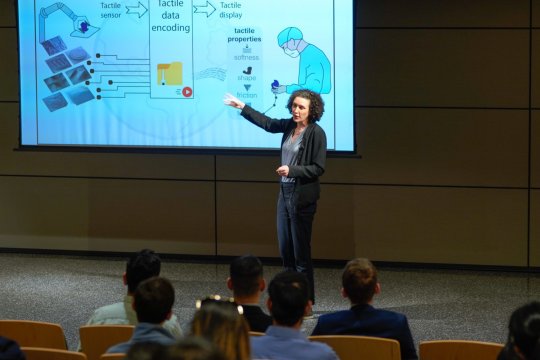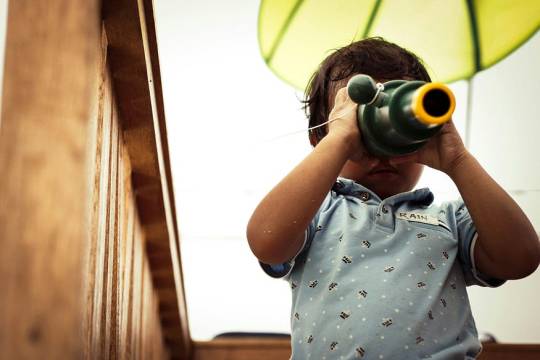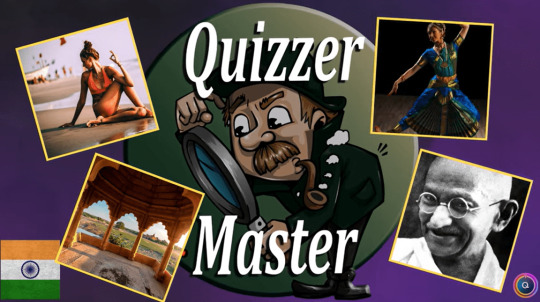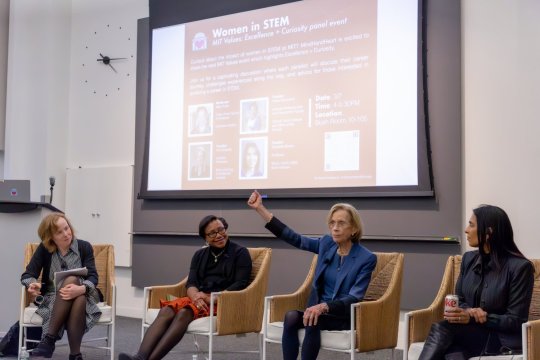#Cognitive curiosity
Text
The Philosophy of Curiosity
The philosophy of curiosity explores the nature, origins, and implications of human curiosity, which drives individuals to seek knowledge, explore new experiences, and ask questions about the world around them. Curiosity has long been recognized as a fundamental aspect of human cognition and behavior, playing a central role in scientific inquiry, philosophical reflection, and everyday life. Here are some key aspects and theories within the philosophy of curiosity:
Epistemic Curiosity: Epistemic curiosity refers to the desire for knowledge and understanding, motivating individuals to seek information, explore new ideas, and engage in intellectual pursuits. Philosophers have debated the nature of epistemic curiosity, its origins in human cognition, and its role in shaping scientific progress and cultural development.
Aesthetic Curiosity: Aesthetic curiosity pertains to the exploration of beauty, art, and creativity, driving individuals to seek out new experiences, appreciate diverse forms of expression, and engage with works of literature, music, visual art, and other cultural artifacts. Aesthetic curiosity raises questions about the nature of artistic inspiration, cultural interpretation, and subjective experience.
Existential Curiosity: Existential curiosity concerns the exploration of existential questions about the nature of existence, meaning, and purpose, motivating individuals to reflect on their own lives, values, and beliefs. Existential curiosity encompasses inquiries into topics such as the nature of consciousness, the search for transcendence, and the quest for personal fulfillment.
Philosophical Curiosity: Philosophical curiosity involves the pursuit of philosophical inquiry, critical thinking, and self-reflection, prompting individuals to question assumptions, challenge conventional wisdom, and explore fundamental concepts such as truth, morality, justice, and reality. Philosophical curiosity underlies the practice of philosophy as a discipline and informs broader intellectual endeavors.
Ethical Curiosity: Ethical curiosity concerns the exploration of ethical questions and moral dilemmas, motivating individuals to consider the consequences of their actions, empathize with others, and strive for moral growth and development. Ethical curiosity raises questions about the nature of moral values, ethical principles, and the pursuit of the good life.
Cognitive Curiosity: Cognitive curiosity encompasses the exploration of cognitive processes, mental states, and psychological phenomena, driving individuals to understand how the mind works, how knowledge is acquired, and how beliefs are formed. Cognitive curiosity informs research in fields such as psychology, neuroscience, and cognitive science.
Cultural Curiosity: Cultural curiosity involves the exploration of diverse cultures, traditions, and worldviews, prompting individuals to learn about different societies, languages, and customs, and to appreciate the richness of human diversity. Cultural curiosity fosters intercultural understanding, global awareness, and cross-cultural communication.
Metacognitive Curiosity: Metacognitive curiosity pertains to the exploration of one's own cognitive processes and learning strategies, motivating individuals to reflect on their own thinking, monitor their own understanding, and adapt their learning strategies to achieve greater intellectual growth and self-improvement.
Overall, the philosophy of curiosity explores the multifaceted nature of human curiosity and its profound influence on knowledge, creativity, personal growth, and the human condition.
#philosophy#epistemology#knowledge#learning#chatgpt#education#psychology#Epistemic curiosity#Aesthetic curiosity#Existential curiosity#Philosophical curiosity#Ethical curiosity#Cognitive curiosity#Cultural curiosity#Metacognitive curiosity#Human cognition#Inquiry#Exploration#Intellectual curiosity#Human experience#Curiosity and creativity#Curiosity and learning
55 notes
·
View notes
Text
tfw you have a genuinely intellectual question about something in a fandom but are terrified to kick the hornet's nest of asking it

#it's about steddyhands#which is very much not my thing#but lately I've started finding things about fandom interesting on a like sociological level#like I literally bought a book about it the other day#by like actual real scholars#and another by a psychologist who studies the cognitive effects of fiction#like I cannot stress enough how much this in an intellectual curiosity#and not an indictment of people's OTPs or OT3s#but there's no way I can ask it on here without fear#because it feels like mentioning a certain First Mate might get me struck by lightning#or whatever the tumblr equivalent of that is#ofmd#our flag means death#being a fandom is suffering#fandom crit#fandom is hell
6 notes
·
View notes
Note
What do you hate or dislike about Writeblr
Nothing enough to give an answer to this, anon
#asks#anonymous#I could point out things I dislike I suppose but I don’t even know where to begin#and it’s not because there’s a lot it’s because my brain is empty and I’m cognitively exhausted#curious if this came from general curiosity or from a negative place#I hope I don’t ever give off the indication that I hate or dislike writeblr at all#I met my platonic life partner and creative partner and so many friends through this place
2 notes
·
View notes
Text
Science communication competition brings research into the real world
New Post has been published on https://thedigitalinsider.com/science-communication-competition-brings-research-into-the-real-world/
Science communication competition brings research into the real world


Laurence Willemet remembers countless family dinners where curious faces turned to her with shades of the same question: “What is it, exactly, that you do with robots?”
It’s a familiar scenario for MIT students exploring topics outside of their family’s scope of knowledge — distilling complex concepts without slides or jargon, plumbing the depths with nothing but lay terms. “It was during these moments,” Willemet says, “that I realized the importance of clear communication and the power of storytelling.”
Participating in the MIT Research Slam, then, felt like one of her family dinners.
The finalists in the 2024 MIT Research Slam competition met head-to-head on Wednesday, April 17 at a live, in-person showcase event. Four PhD candidates and four postdoc finalists demonstrated their topic mastery and storytelling skills by conveying complex ideas in only 180 seconds to an educated audience unfamiliar with the field or project at hand.
The Research Slam follows the format of the 3-Minute Thesis competition, which takes place annually at over 200 universities around the world. Both an exciting competition and a rigorous professional development training opportunity, the event serves an opportunity to learn for everyone involved.
One of this year’s competitors, Bhavish Dinakar, explains it this way: “Participating in the Research Slam was a fantastic opportunity to bring my research from the lab into the real world. In addition to being a helpful exercise in public speaking and communication, the three-minute time limit forces us to learn the art of distilling years of detailed experiments into a digestible story that non-experts can understand.”
Leading up to the event, participants joined training workshops on pitch content and delivery, and had the opportunity to work one-on-one with educators from the Writing and Communication Center, English Language Studies, Career Advising and Professional Development, and the Engineering Communication Labs, all of which co-sponsored and co-produced the event. This interdepartmental team offered support for the full arc of the competition, from early story development to one-on-one practice sessions.
The showcase was jovially emceed by Eric Grunwald, director of English language learning. He shared his thoughts on the night: “I was thrilled with the enthusiasm and skill shown by all the presenters in sharing their work in this context. I was also delighted by the crowd’s enthusiasm and their many insightful questions. All in all, another very successful slam.”
A panel of accomplished judges with distinct perspectives on research communication gave feedback after each of the talks: Deborah Blum, director of the Knight Science Journalism Program at MIT; Denzil Streete, senior associate dean and director of graduate education; and Emma Yee, scientific editor at the journal Cell.
Deborah Blum aptly summed up her experience: “It was a pleasure as a science journalist to be a judge and to listen to this smart group of MIT grad students and postdocs explain their research with such style, humor, and intelligence. It was a reminder of the importance the university places on the value of scientists who communicate. And this matters. We need more scientists who can explain their work clearly, explain science to the public, and help us build a science-literate world.”
After all the talks, the judges provided constructive and substantive feedback for the contestants. It was a close competition, but in the end, Bhavish Dinakar was the judges’ choice for first place, and the audience agreed, awarding him the Audience Choice award. Omar Rutledge’s strong performance earned him the runner-up position. Among the postdoc competitors, Laurence Willemet won first place and Audience Choice, with Most Kaniz Moriam earning the runner-up award.
Postdoc Kaniz Mariam noted that she felt privileged to participate in the showcase. “This experience has enhanced my ability to communicate research effectively and boosted my confidence in sharing my work with a broader audience. I am eager to apply the lessons learned from this enriching experience to future endeavors and continue contributing to MIT’s dynamic research community. The MIT Research Slam Showcase wasn’t just about winning; it was about the thrill of sharing knowledge and inspiring others. Special thanks to Chris Featherman and Elena Kallestinova from the MIT Communication Lab for their guidance in practical communication skills. ”
Double winner Laurence Willemet related the competition to experiences in her daily life. Her interest in the Research Slam was rooted in countless family dinners filled with curiosity. “‘What is it exactly that you do with robots?’ they would ask, prompting me to unravel the complexities of my research in layman’s terms. Each time, I found myself grappling with the task of distilling intricate concepts into digestible nuggets of information, relying solely on words to convey the depth of my work. It was during these moments, stripped of slides and scientific jargon, that I realized the importance of clear communication and the power of storytelling. And so, when the opportunity arose to participate in the Research Slam, it felt akin to one of those family dinners for me.”
The first place finishers received a $600 cash prize, while the runners-up and audience choice winners each received $300.
Last year’s winner in the PhD category, Neha Bokil, candidate in biology working on her dissertation in the lab of David Page, is set to represent MIT at the Three Minute Thesis Northeast Regional Competition later this month, which is organized by the Northeastern Association of Graduate Schools.
A full list of slam finalists and the titles of their talks is below.
PhD Contestants:
Pradeep Natarajan, Chemical Engineering (ChemE), “What can coffee-brewing teach us about brain disease?”
Omar Rutledge, Brain and Cognitive Sciences, “Investigating the effects of cannabidiol (CBD) on social anxiety disorder”
Bhavish Dinakar, ChemE, “A boost from batteries: making chemical reactions faster”
Sydney Dolan, Aeronautics and Astronautics, “Creating traffic signals for space”
Postdocs:
Augusto Gandia, Architecture and Planning, “Cyber modeling — computational morphogenesis via ‘smart’ models”
Laurence Willemet, Computer Science and Artificial Intelligence Laboratory, “Remote touch for teleoperation”
Most Kaniz Moriam, Mechanical Engineering, “Improving recyclability of cellulose-based textile wastes”
Mohammed Aatif Shahab, ChemE, “Eye-based human engineering for enhanced industrial safety”
Research Slam organizers included Diana Chien, director of MIT School of Engineering Communication Lab; Elena Kallestinova, director of MIT Writing and Communication Center; Alexis Boyer, assistant director, Graduate Career Services, Career Advising and Professional Development (CAPD); Amanda Cornwall, associate director, Graduate Student Professional Development, CAPD; and Eric Grunwald, director of English Language Studies. This event was sponsored by the Office of Graduate Education, the Office of Postdoctoral Services, the Writing and Communication Center, MIT Career Advising and Professional Development, English Language Studies, and the MIT School of Engineering Communication Labs.
#2024#aeronautics#anxiety#arc#architecture#Art#artificial#Artificial Intelligence#batteries#Biology#Brain#Brain and cognitive sciences#career#Career Advising and Professional Development#cell#cellulose#chemical#Chemical engineering#chemical reactions#coffee#communication#Community#competition#computer#Computer Science#content#Contests and academic competitions#curiosity#cyber#development
1 note
·
View note
Text
Cultivating Curiosity: Reading for Child Growth
Reading plays a vital role in the growth and development of children. Not only does it expand their knowledge and vocabulary, but it also stimulates their imagination and curiosity. Curiosity is a natural instinct in children, and nurturing this curiosity through reading can have profound effects on their cognitive, social, and emotional development. In this blog, we explore the science behind curiosity and its impact on child growth. We also delve into the power of reading in cultivating curiosity and enhancing various aspects of a child’s development. Furthermore, we discuss the role of parents in fostering curiosity and providing children with the tools they need to become lifelong readers. So let’s dive in and explore the world of reading and its impact on child growth and development.
What is the role of curiosity in the education of a child?

The Science behind Curiosity and Learning
The science of curiosity and cognitive psychology reveals the intricate relationship between curiosity and brain development in children. Curiosity helps children make sense of the world around them by motivating them to seek knowledge and experiences. When children encounter something new or challenging, their brain activity increases as they try to understand and make connections. This heightened brain activity strengthens neural pathways, facilitating the development of cognitive skills such as reasoning, problem-solving, and information processing. Curiosity also encourages the development of executive functions, including attention, planning, and self-regulation, which are essential for academic and life success.
Curiosity is the wick in the candle of learning. Curiosity is one of the great secrets of happiness.
How does curiosity help in Child’s Growth and development?
Curiosity plays a crucial role in shaping a child’s growth by fueling exploration, creativity, and problem-solving abilities. It encourages children to independently seek answers and ask questions, fostering critical thinking skills. These cognitive abilities are vital, especially considering that many children lack necessary skills for reading at the start of kindergarten. Additionally, nurturing curiosity supports social and emotional development, empowering children to navigate the world with confidence and resilience.
The Power of Reading in Cultivating Curiosity

How Reading Stimulates Curiosity: An Overview
Stimulating curiosity through reading is essential as many children struggle with proficiency by third grade. Books offer diverse experiences and knowledge, sparking curiosity with varied themes and plots. Engaging young minds, reading encourages critical thinking and questioning skills. By fostering a love for books early on, children develop a curiosity-driven mindset, paving the way for lifelong learning and exploration.
Exploring the Benefits of Reading to Children
Books offer a great opportunity to enhance a child’s development through exposure to diverse stories and vocabulary. Regular reading not only boosts literacy skills but also fosters empathy and social understanding in the child’s life. Reading aloud is the best way for caregivers to promote language skills and bond with children. Furthermore, research has shown that children benefit significantly from being read to on a regular basis, enriching their world with familiar words and new experiences.
“The important thing is not to stop questioning. Curiosity has its own reason for existing.”
― Albert Einstein
Cognitive Development and Reading

Language Skills Enhancement through Reading

Academic Success and the Role of Reading
Reading has a profound impact on academic success, laying the foundation for lifelong learning and intellectual growth. Strong reading skills, including reading comprehension and literacy, are essential for success across various academic disciplines. When children have the ability to understand and analyze written texts, they can access and acquire knowledge independently, leading to higher levels of academic achievement. Furthermore, reading enhances critical thinking skills, stimulates creativity, and develops the analytical and problem-solving abilities necessary for academic success. By instilling a love for reading and providing children with the tools to become competent readers, parents and educators empower children to excel in their academic pursuits and navigate the world of knowledge with confidence.
Reading and Imagination: A Creative Bond
Reading and imagination share a powerful bond, with books serving as gateways to new worlds and unlimited possibilities. When children immerse themselves in stories, their imaginations take flight, and they become active participants in the creative process. Through books, children have the opportunity to explore different realms, encounter unique characters, and experience diverse perspectives. Reading fosters imaginative thinking, encouraging children to envision, dream, and invent. It sparks curiosity and prompts children to ask questions, make connections, and engage in imaginative activities. By nurturing reading and imagination, parents and educators nurture the creative minds of children, fostering innovation, and preparing them to become future thinkers and creators.
Parents’ Contribution to Cultivating Curiosity through Reading
Parents play a critical role in cultivating curiosity in children through reading. Starting from infancy, parents can introduce books and reading as a regular and special part of the child’s life. During the early years, parents can engage young children in storytime, using picture books and interactive stories to capture their attention and stimulate their curiosity. As children grow older, parents can adapt reading strategies to suit their age group, such as discussions about the books, encouraging critical thinking and analyzing the stories. By actively participating in reading activities, parents contribute to the development of literacy skills, language acquisition, and the fostering of a lifelong love of reading in their children.
Engaging Young Minds: Where to Start?

Reading Strategies for Different Age Groups
Reading strategies vary across different age groups, as children’s cognitive and language development progresses. For babies and toddlers, reading aloud and engaging them in sensory-rich books and nursery rhymes help nurture early language skills, phonemic awareness, and cognitive development. Preschoolers benefit from storytelling and age-appropriate picture books that encourage their imagination and language development. Older children, such as preschoolers and school-aged children, can be encouraged to read independently, nurturing their literacy skills and comprehension abilities. By tailoring reading strategies to suit the age and developmental stage of the child, parents can fuel curiosity, language acquisition, and cognitive growth throughout the child’s formative years.
Encouraging a Lifelong Love of Reading
Encouraging a lifelong love of reading in children begins with establishing a regular reading routine and making story time a special and enjoyable activity. By setting aside dedicated time each day for reading, parents not only reinforce the importance of reading but also provide a predictable and comforting experience for their children. Creating a cozy reading corner in the home and ensuring a wide selection of books available also contributes to the development of a reading habit. Additionally, visiting the local library and involving children in choosing books empowers them and fosters a sense of ownership and excitement about reading. By nurturing reading as a regular and enjoyable part of life, parents can cultivate a lifelong love of reading in their children.
Reading as a Tool for Child Growth: Real-Life Stories
Real-life stories serve as powerful illustrations of the impact reading can have on a child’s growth and development. Numerous children have experienced remarkable transformations through reading, both academically and personally. By immersing themselves in books and stories, these children have developed stronger language skills, improved cognitive abilities, and enhanced empathy and social skills. Reading has not only enriched their lives but also opened doors to new opportunities and expanded their horizons. These inspiring stories highlight the benefits of reading in child development and reinforce the idea that reading is not just a hobby or educational activity, but a transformative tool for growth and development.
Inspiring Cases of Child Growth through Reading
Stories of child growth and development through reading serve as remarkable examples of the transformative power of books. Numerous children have found solace, knowledge, and inspiration in the pages of books, propelling their personal and academic growth. Through reading, children have developed stronger literacy skills, expanded vocabularies, and sharpened critical thinking abilities from an early age. These benefits have translated into academic success, increased confidence, and a lifelong love of learning. The stories of these children highlight the multitude of ways reading can positively impact a child’s life, proving that the benefits of reading extend far beyond the confines of the book and into the realms of personal growth and development.
Lessons Learned: What Works and What Doesn’t
In the realm of reading and child development, there are lessons to be learned about what works and what doesn’t when it comes to nurturing curiosity and fostering a love of reading. While there is no one-size-fits-all approach, certain strategies have proven effective in engaging children and cultivating lifelong love of reading. Consistency in reading routines, age-appropriate book choices, and open discussions about stories are some of the best ways to support a child’s reading journey. However, it’s crucial to recognize that every child is unique, and what works for one might not work for another. Finding the right way and individualizing strategies for each child is key, and embracing the joy of reading as a personal and enjoyable activity is always a good idea.
How Crucial is Reading for a Child’s Intellectual Growth?
Reading plays a crucial role in a child’s intellectual growth and cognitive development. It is through books and reading that children gain knowledge, expand their vocabulary, and develop critical thinking skills. Cognitive psychology research suggests that reading stimulates various cognitive processes, including memory, attention, and information processing. By engaging with books, children exercise their cognitive abilities and enhance their reasoning and problem-solving skills. In addition, reading contributes to language acquisition, as children are exposed to new words, language structures, and grammar rules. It lays the foundation for effective communication and language fluency. Intellectual growth, cognitive development, and language acquisition are intertwined, and reading serves as a vehicle for their holistic development. By fostering a love for reading and providing children with a rich literary environment, parents and educators support their intellectual growth and equip them with the skills necessary for academic success and lifelong learning.
7 Benefits of Reading to Children
Reading to children offers numerous benefits that contribute to their overall development, especially in social and emotional domains. Firstly, reading supports cognitive development, reasoning skills, and information processing. Secondly, reading enhances language skills, vocabulary acquisition, and language development. Thirdly, reading prepares children for academic success, improving reading comprehension, literacy skills, and providing the foundation for lifelong learning. Fourthly, reading assists in developing a special bond between caregiver and child, promoting attachment and reassurance. Additionally, reading improves concentration and discipline, essential for cognitive development, and cultivates a lifelong love of reading, making it an enjoyable and regular activity in the child’s life. Finally, reading stimulates the imagination, creativity, and the development of a creative bond with stories, characters, and new worlds.
Supported cognitive development
Reading supports cognitive development in children in various ways. Engaging with books enhances reasoning skills, as children must analyze and interpret information within the story. Books provide opportunities for critical thinking and problem-solving, skills that are vital for cognitive development. Additionally, reading exercises the brain and enhances information processing, memory, and attention span. By following storylines and understanding complex narratives, children’s cognitive abilities are challenged and strengthened. As children read and comprehend different books, they develop the skills and strategies necessary to understand and navigate the world around them, leading to improved cognitive skills and cognitive growth.
Improved language skills
Reading plays a fundamental role in improving language skills in children. By exposing children to a wide range of vocabulary, books help expand their language repertoire and comprehension abilities. Through reading, children encounter new words, phrases, and language structures, strengthening their vocabulary and helping them express themselves more effectively. Additionally, books assist in developing grammar and syntax understanding, improving language fluency and literacy. Reading aloud and engaging in discussions about books enhance children’s language acquisition and articulation skills. Furthermore, reading familiar stories and rhymes helps children develop phonics knowledge, which is essential for reading and language development. By nurturing language skills through reading, children gain the tools they need to communicate, connect, and thrive in the world.
Prepare for academic success
Reading plays a pivotal role in preparing children for academic success. Strong reading skills, including reading comprehension and literacy, are crucial for understanding and analyzing information across various subjects. Children who read regularly and develop good reading habits are equipped with the necessary skills to excel in school. Reading comprehension, the ability to understand and interpret written texts, is essential for extracting knowledge and information from textbooks, articles, and other learning materials. Furthermore, literacy skills acquired through reading, such as phonics, vocabulary, and reading fluency, provide children with the foundation needed to succeed in reading and writing-related tasks. By nurturing reading skills and providing children with diverse reading opportunities, parents and educators set children on a path towards academic success and lifelong learning.
Developing a special bond with your child

Increased concentration and discipline
Regular reading sessions contribute to increased concentration and discipline in children. Reading requires focus and attention, as children must follow storylines, comprehend information, and remember details. Through consistent reading routines, children develop the ability to concentrate for longer periods, a skill that benefits cognitive development and academic performance. Additionally, storytelling and reading books encourage discipline, as children learn the value of staying engaged and following through with tasks, even when faced with distractions. The cultivation of concentration and discipline through reading supports cognitive development and the acquisition of important life skills, setting children up for success in various areas of their lives.
Cultivating a lifelong love of reading
Cultivating a lifelong love of reading is one of the greatest gifts parents and educators can give to children. Reading should be seen as an enjoyable and regular activity, providing children with moments of pleasure, knowledge, and discovery. By creating a positive reading environment and making reading part of the child’s daily life, parents and educators instill the idea that reading is not a chore, but a source of joy and personal growth. Regular exposure to books, engaging in story time, and modeling reading habits help children develop a positive attitude towards reading, making it an integral part of their lives beyond childhood, and fostering a lifelong love of books and learning.
Improved imagination and creativity
Reading plays a pivotal role in enhancing children’s imagination and fostering creativity. Books provide a gateway to imaginative worlds, where children can envision and explore new ideas, characters, and scenarios. Through stories, children develop the ability to visualize and create vivid mental images, stimulating their imaginative thinking. Engaging with books nurtures creativity by encouraging children to think outside the box, devise new solutions, and generate innovative ideas. Reading ignites the creative spark within children, inspiring them to become storytellers, artists, and creators in their own right. By nourishing the creative bond between stories and the imagination, parents and educators support children in developing their unique voices and cultivates lifelong creativity.
Understanding reading milestones
Understanding reading milestones is essential for supporting children in their literacy and language development. As children grow, they reach various reading milestones that reflect their progress in literacy skills. From infancy to early adulthood, the reading milestones can be observed in language acquisition, phonemic awareness, vocabulary acquisition, and reading comprehension. Tracking the development of these skills at each milestone allows parents and educators to provide appropriate reading materials, strategies, and support, ensuring a smooth progression in children’s reading abilities. Recognizing and addressing reading milestones empower children in their literacy journey, creating a solid foundation for lifelong reading and language development.
Infancy (Up to Age 1)
In the infancy stage, reading supports the development of language skills and phonemic awareness in children. Reading aloud to infants introduces them to the sounds, rhythms, and patterns of language, aiding in the development of phonemic awareness — the ability to identify and manipulate individual sounds in words. Picture books and nursery rhymes engage infants’ visual and auditory senses, exposing them to the benefits of reading from an early age. By reading to infants and engaging in language-rich conversations, parents and caregivers lay the foundation for language acquisition and foster a lifelong love of reading.
Toddlers (Ages 1–3)
Toddlers continue to benefit from reading as they further their language acquisition and expand their vocabulary. Picture books and interactive stories capture toddlers’ attention and curiosity, encouraging language development, and vocabulary growth. Repetition and familiar stories help toddlers reinforce language skills and comprehension, as they interact with the same books and become familiar with words and sounds. Reading to toddlers sparks their imagination, cognitive development, and social skills, nurturing their love for reading and building the foundation for future literacy skills.
Early Preschool (Age 3)
In the early preschool years, reading continues to play a vital role in language development and the acquisition of new words. Introducing alphabet books and reading stories that focus on sounds and syllables help preschoolers deepen their phonemic awareness and phonics skills, strengthening their language skills and vocabulary acquisition. Engaging in imaginative and interactive storytelling stimulates preschoolers’ creativity and cognitive development, as they follow storylines, make predictions, and engage in conversations about the stories. By exposing preschoolers to new words, book characters, and storylines, parents and educators support language development, cognitive growth, and the love of reading in young children.
Late Preschool (Age 4)
In the late preschool years, children’s language skills and storytelling abilities continue to evolve, and reading plays an important role in fostering literacy and cognitive development. Storytelling and reading alphabet books help preschoolers develop phonics skills and increase their knowledge of letter sounds and shapes. Additionally, storytelling and picture books that focus on the alphabet and familiar words help children broaden their vocabulary and enhance comprehension skills. Parents and educators can engage children in discussions about the stories, encouraging critical thinking and analysis. The late preschool years are a crucial time for developing literacy skills, and reading provides a great opportunity for children to explore language, expand their knowledge, and ignite their love for storytelling and reading.
Kindergarten (Age 5)
Kindergarten is an exciting time for language development and reading skills. In this stage, children begin to understand the relationship between letters and sounds and develop phonics skills. Reading phonics books and stories that emphasize syllables and word sounds help children decode words and improve reading fluency. Kindergarteners benefit from books that expand their vocabulary and introduce new words, allowing them to express themselves more effectively. By engaging in age-appropriate reading activities, such as phonics and alphabet games, educators and parents support the development of reading skills and foster a love of reading in children at this critical stage of their literacy journey.
First and Second Grade (Ages 6–7)

Second and Third Grade (Ages 7–8)
In the second and third grades, reading comprehension, literacy skills, and vocabulary development become increasingly important. Children at this age can engage in more complex storylines and texts, enhancing their reading comprehension skills and knowledge of literary elements. Encouraging children to read independently and offering books at their reading level supports literacy skills and comprehension growth. Discussing books and asking questions deepen reading comprehension and critical thinking skills, fostering a love for reading and expanding vocabulary acquisition. Parents and educators can help children explore various genres and books, building their literacy skills, and nurturing their passion for reading.
Fourth Through Eighth Grade (Ages 9–13)
From the fourth through the eighth grade, children continue to refine their critical thinking, comprehension, and literacy skills through reading and analysis of various texts. At this stage, children are exposed to different writing styles and genres, allowing them to critically analyze and interpret information within the text. Reading comprehension skill development becomes paramount, as children learn to navigate complex storylines, identify main ideas, and draw inferences. The acquisition of strong literacy skills enables children to understand and communicate effectively, while the development of critical thinking skills empowers them to analyze and evaluate information critically. By encouraging reading and facilitating discussion and analysis, parents and educators support children in building essential skills for academic success and lifelong learning.
Frequently Asked Questions
What Are the Benefits of Reading for Children?
Reading enhances children’s language abilities and expands their vocabulary. It sparks creativity, nurtures focus, and instills a passion for learning. These benefits culminate in improved academic performance, making reading an essential tool for holistic child development.
Why is Reading so Important for Children?
Discover why reading holds such significance for children. Through books, kids refine language skills, nurture creativity and critical thinking, boost cognitive functions, and develop empathy and social awareness.
How can parents encourage reading?

What other benefits does reading to your child have?
Exploring the advantages of reading to your child: Enhancing language skills, instilling a passion for learning, nurturing the parent-child relationship, and boosting creativity and cognitive development.
How does reading to kids build their language skills?
Reading to children enhances their language abilities by exposing them to a diverse vocabulary. It aids in grasping sentence structures and grammar, improves listening skills, and fosters effective self-expression through literature.
How does shared book-reading help boost child language development in the early years?
Shared book-reading enhances child language skills by expanding vocabulary and fostering parent-child bonds. It introduces story structure, communication, and listening skills, promoting cognitive development and laying the foundation for literacy.
How can teachers encourage reading?
Encouraging reading in students involves creating a conducive classroom atmosphere, like a cozy reading nook. Providing diverse book options for different tastes and levels, scheduling independent reading time, and sparking discussions about their reads can deepen understanding and interest.
“The mediocre teacher tells. The good teacher explains. The superior teacher demonstrates. The great teacher inspires.”
― William Arthur Ward
What is the Importance of Stories in Child Education?
Stories play a vital role in shaping child education. They foster imagination and creativity, impart moral values in an engaging manner, enhance language and literacy skills, and expose children to diverse cultures and experiences.
What are the cognitive benefits of reading for child development?
Exploring the cognitive advantages of reading for children’s growth involves enhancing language skills and vocabulary, boosting focus and cognitive functions, nurturing creativity and critical thinking, and promoting empathy through exposure to diverse perspectives.
At what age should parents start reading to their children for optimal development?
Parents can kickstart reading habits with their children during infancy to foster language, bonding, and cognitive skills. Consistent daily reading from a young age is recommended for optimal development, nurturing a lifelong love for learning through books.
What are the emotional benefits of reading for child development?
Exploring how reading enhances child development emotionally: Unveiling empathy through diverse perspectives, aiding stress reduction via imaginative escapes, nurturing emotional intelligence for complex feelings comprehension, and boosting self-esteem and confidence in regular young readers.
Conclusion
In conclusion, reading plays a pivotal role in nurturing curiosity and fostering growth in children. By engaging young minds through the exploration of books, parents can ignite a passion for learning and creativity. Reading not only enhances cognitive development, language skills, and academic success but also strengthens the parent-child bond. Encouraging a love for reading early on sets the stage for a lifelong journey of imagination and knowledge acquisition. Through real-life stories and shared experiences, we witness the transformative impact of reading on a child’s intellectual and emotional well-being. Embrace the power of reading to unlock a world of possibilities for your child’s growth and development.
#child development#reading#reading habits#cognitive behaviour#curiosity#kids toys#kids activities#storytime
0 notes
Text
Superstitions and Minds
Are you superstitious?
Superstitions are beliefs that one thing can cause another without any logical reason, like thinking finding a penny will bring good luck. People have studied why we believe in these things, and it turns out our brains like to find patterns and make connections, even when there aren’t any. This habit comes from our ancestors, who needed to guess what was happening around…

View On WordPress
#belief systems#cognitive processes#coping mechanisms#critical thinking#curiosity#dailyprompt#dailyprompt-1875#evolutionary psychology#human behavior#human psychology#knowledge pursuit#neurological underpinnings#pattern recognition#rational thought#superstitions
0 notes
Text
Unlocking the Mind's Full Potential
A Journey Beyond the OrdinaryIn a world where our thoughts often run on autopilot, dictated by routine and societal norms, the true potential of the human mind remains largely untapped. It’s akin to a vast, unexplored landscape, brimming with possibilities that transcend the mundane. But how do we navigate this inner wilderness and fully express the capabilities of our minds?The first step is…

View On WordPress
#Cognitive Development#creativity#Curiosity#Human Potential#innovation#Intellectual Curiosity#mental exploration#mindfulness#Personal Growth#Thought Processes
1 note
·
View note
Text
Fostering Innovation through Divergent Thinking
In this fast-paced, ever-evolving world, where technology and global issues reshape our lives daily, the ability to think creatively is not just a plus; it's essential for survival and success. Central to this creative capability is divergent thinking, the mental process that propels individuals to generate multiple solutions to complex situations. This contrasts sharply with convergent thinking, which narrows down to one correct solution, highlighting a broad spectrum of innovative possibilities instead.
Origins of Divergent Thinking
Divergent thinking shines brightest in the young, manifested through their raw curiosity and boundless imagination, prompting them to pose unique questions and conceive distinctive solutions. Brian Houchins of renowned innovators like Albert Einstein, who exhibited this trait early on by questioning mundane realities with profound curiosity, illustrate the natural inclination of humans to think differently. Yet, as people age, societal norms, educational frameworks, and the pressure to conform often suppress this natural propensity, dulling the vibrant spark of creativity.
Beyond Traditional Intelligence
Traditional measures of intelligence, focusing on analytical abilities and rote memory, fail to capture the entire essence of human intellect. Divergent thinking goes beyond these confines, fostering connections among unrelated ideas, reshaping problems, and inventing novel solutions. Psychologist Ellen Winner delineates the contrast between standard intelligence, which operates within fixed boundaries, and creativity, which thrives on disruption and innovation. This highlights the necessity for environments that stimulate questioning and view failure as a pathway to discovery rather than a dead end.
Nurturing a Mindset for Divergent Thinking
The decline in divergent thinking is not a foregone conclusion but a reversible trend. Individuals can rekindle their creative flare through dedicated practices and supportive settings:
Welcoming Uncertainty and Mistakes
A foundational step in fostering divergent thinking involves embracing the unpredictable nature and inherent chaos of creative endeavors. Personal development guru Brian Tracy emphasizes the importance of acknowledging mistakes as part of the learning process. This acceptance can free individuals from the paralyzing fear of failure, which often inhibits creative risk-taking.

Stimulating Curiosity and Investigative Spirit
Creating environments that prize inquisitiveness over rote answers can significantly boost divergent thinking. Educational institutions, workplaces, and communities that champion open-ended questions and encourage intellectual exploration can cultivate a more innovative and flexible mindset among individuals.
Broadening Horizons through Diverse Experiences
Experiencing different cultures, academic fields, and perspectives can greatly enhance one's divergent thinking capabilities. Venturing beyond familiar territories helps expand mental frameworks and fosters unexpected connections between disparate ideas.
Adopting Mindfulness and Reflective Practices
Mindfulness and reflective practices, such as meditation, journaling, or artistic endeavors, support a state of open-minded awareness conducive to divergent thinking. These practices assist individuals in digesting their experiences, recognizing underlying patterns, and forming fresh insights.
Utilizing Digital Platforms for Collaborative Innovation
The advent of digital technology has opened new avenues for collective creative expression. Social media and online collaborative platforms allow for the exchange of ideas and the cultivation of communities dedicated to innovative thinking. By tapping into these resources, individuals can draw inspiration from a global pool of diversity and expertise.
Conclusion
As our world grows more intricate and interconnected, the demand for inventive solutions intensifies. Divergent thinking transcends being a mere natural talent to become a vital, cultivable skill. By fostering a culture that values curiosity, embraces diversity, and promotes an open exchange of ideas, we can unlock vast potential for creative innovation. Cultivating our collective divergent thinking abilities prepares us to navigate and shape a future filled with unique challenges and opportunities.
#divergent thinking#creativity development#fostering innovation#nurturing creativity#embracing uncertainty#curiosity enhancement#mindfulness in creativity#collaborative innovation#divergent vs convergent thinking#creative problem-solving#enhancing imagination#intellectual exploration#educational creativity#overcoming societal norms#innovative thinking strategies#cultivating open-mindedness#divergent thinking techniques#creative mindset cultivation#leveraging digital platforms#expanding cognitive horizons
0 notes
Text
Fostering Innovation through Divergent Thinking
In this fast-paced, ever-evolving world, where technology and global issues reshape our lives daily, the ability to think creatively is not just a plus; it's essential for survival and success. Central to this creative capability is divergent thinking, the mental process that propels individuals to generate multiple solutions to complex situations. This contrasts sharply with convergent thinking, which narrows down to one correct solution, highlighting a broad spectrum of innovative possibilities instead.
Origins of Divergent Thinking
Divergent thinking shines brightest in the young, manifested through their raw curiosity and boundless imagination, prompting them to pose unique questions and conceive distinctive solutions. Stories of renowned innovators like Albert Einstein, who exhibited this trait early on by questioning mundane realities with profound curiosity, illustrate the natural inclination of humans to think differently. Yet, as people age, societal norms, educational frameworks, and the pressure to conform often suppress this natural propensity, dulling the vibrant spark of creativity.
Beyond Traditional Intelligence
Traditional measures of intelligence, focusing on analytical abilities and rote memory, fail to capture the entire essence of human intellect. Divergent thinking goes beyond these confines, fostering connections among unrelated ideas, reshaping problems, and inventing novel solutions. Psychologist Ellen Winner delineates the contrast between standard intelligence, which operates within fixed boundaries, and creativity, which thrives on disruption and innovation. This highlights the necessity for environments that stimulate questioning and view failure as a pathway to discovery rather than a dead end.
Nurturing a Mindset for Divergent Thinking
The decline in divergent thinking is not a foregone conclusion but a reversible trend. Individuals can rekindle their creative flare through dedicated practices and supportive settings:
Welcoming Uncertainty and Mistakes

A foundational step in fostering divergent thinking involves embracing the unpredictable nature and inherent chaos of creative endeavors. Personal development guru Brian Tracy emphasizes the importance of acknowledging mistakes as part of the learning process. This acceptance can free individuals from the paralyzing fear of failure, which often inhibits creative risk-taking.
Stimulating Curiosity and Investigative Spirit
Creating environments that prize inquisitiveness over rote answers can significantly boost divergent thinking. Educational institutions, workplaces, and communities that champion open-ended questions and encourage intellectual exploration can cultivate a more innovative and flexible mindset among individuals.
Broadening Horizons through Diverse Experiences
Experiencing different cultures, academic fields, and perspectives can greatly enhance one's divergent thinking capabilities. Venturing beyond familiar territories helps expand mental frameworks and fosters unexpected connections between disparate ideas.
Adopting Mindfulness and Reflective Practices
Mindfulness and reflective practices, such as meditation, journaling, or artistic endeavors, support a state of open-minded awareness conducive to divergent thinking. These practices assist individuals in digesting their experiences, recognizing underlying patterns, and forming fresh insights.
Utilizing Digital Platforms for Collaborative Innovation
The advent of digital technology has opened new avenues for collective creative expression. Social media and online collaborative platforms allow for the exchange of ideas and the cultivation of communities dedicated to innovative thinking. By tapping into these resources, individuals can draw inspiration from a global pool of diversity and expertise.
Brian Houchins
As our world grows more intricate and interconnected, the demand for inventive solutions intensifies. Divergent thinking transcends being a mere natural talent to become a vital, cultivable skill. By fostering a culture that values curiosity, embraces diversity, and promotes an open exchange of ideas, we can unlock vast potential for creative innovation. Cultivating our collective divergent thinking abilities prepares us to navigate and shape a future filled with unique challenges and opportunities.
#divergent thinking#creativity development#fostering innovation#nurturing creativity#embracing uncertainty#curiosity enhancement#mindfulness in creativity#collaborative innovation#divergent vs convergent thinking#creative problem-solving#enhancing imagination#intellectual exploration#educational creativity#overcoming societal norms#innovative thinking strategies#cultivating open-mindedness#divergent thinking techniques#creative mindset cultivation#leveraging digital platforms#expanding cognitive horizons
0 notes
Text
also in regard to that tlou post, i see a lot of people try to make the counter-argument that ellie isn’t narratively rewarded for her beliefs as if that justifies it, or as if the writing wasn’t so blatantly still in service of her beliefs that the faction meant to represent the palestinians is still villainized to this day.
none of you are slick, you will get blocked actually.
#or people bring up gay rep. look up pinkwashing & stop being a loser actually.#but also the writing of abbey 100% shows druckman’s cognitive dissonance in the worst way possible#like she had every justifiable reason to want revenge- joel murdered her father & doomed the world to living in an apocalypse#(i didn’t give the fuckwad creator any money i just watched comprehensive video essays out of curiosity before learning about the zionism)
1 note
·
View note
Text
You’re Doing Human Wrong: The Clickbait Conundrum of Turning People into Products
Twitter
Patreon
GitHub
LinkedIn
YouTube
Ah, the internet, a wondrous labyrinth where the minotaurs are clickbait titles, luring us into their dens with promises of life-altering secrets. Today’s special: “You’re Doing X Wrong.” That’s right, from slicing bread to living your life, you’re apparently doing it all wrong. But worry not, for I am here to guide you through the maze with a torch of…

View On WordPress
#Advertising Strategies#Attention Economy#Audience Manipulation#Clickbait#Cognitive Dissonance#Consumer Awareness#critical thinking#Curiosity Gaps#Digital Awareness#Digital Content#Digital Ethics#Digital Manipulation#Digital Selfhood#Emotional Triggers#human psychology#Information Overload#internet culture#media consumption#Media Literacy#Modern Media#Narrative Techniques#Online Behavior#Personal Improvement#Productification#Psychological Impact#Reader Exploitation#Self-Esteem Issues#Self-Perception#Sensationalism#Social Media Trends
0 notes
Photo

Minds at Play Testing introduces an exhilarating and professional experience through their revolutionary game, "General Knowledge Trivia." This captivating venture embraces the power of knowledge with a dynamic twist, challenging players to explore the depths of their intellectual prowess. Immerse yourself in a world where curiosity reigns supreme, as you embark on an electrifying journey stacked with mind-boggling questions from various domains. Watch video https://www.youtube.com/watch?v=A9qqPr5twbA
0 notes
Text
yami ai [yandere] - Hot Yandere Singles Near You

synopsis: you click on a random pop-up ad and are visited by weird smiling man in suit.
genre: pure crack (like fr), fluff, tbh there's not really a plot
word count: 4.4k
warnings: implied stalking
Isn’t insomnia just the worst? Like, seriously? What’s the point of being a human being with antiquated thoughts and impressive cognitive and motor skills when your brain fights you on the most basic stuff. For example, like sleeping!!
You must’ve refreshed YouTube and Twitter over a thousand times. Over 8 billion people in the world and there’s no new content anywhere? You groaned and jumped back over onto Twitter, silently praying and pleading for something new to show up on your feed. Maybe a wacky billionaire got eaten by a mob of homeless people or maybe a news article about a Floridian doing something gross and outrageous and virtually impossible.
But nope. Nothing.
Not a single thing piqued your interest. You groaned again and looked at the time on your dimly lit phone. It was past 2 a.m. and you were bored out of your mind. You then lazily clicked on Google and sighed.
‘Maybe someone posted a new fanfic over something…’ you hoped. And even if there wasn’t a new fic uploaded you’ll just read the old ones you favorited. Perhaps reading something might put you to sleep.
As you were scrolling through your favorite ship tags, you were startled by a pop up ad covering up 90% of the screen and flashing emojis.
“Ugh… seriously?” you groaned. “They should make ad-blockers on phones for this shit.” You squinted at the bright lettering emanating from your phone even though it was at the lowest brightness setting.
⚠️(99+) Hot Yandere Singles NEAR YOU⚠️
Yandere’s…? Singles? Near me?
The pop-up ad had flashing peach, cherry, and eggplant emojis with a water splash emoji at the end to signify… well, you’re not sure what it was trying to signify. On the sides of the ad, it showed pictures of very gorgeous men and women, all striking suggestive poses. Underneath the title was a small summary that read. ‘These lonely desperate yanderes wanna meet you! They’ll most likely find you anyway, but wouldn’t you rather be the honey to a bee instead of a fly? Try it NOW for FREE!! No hookups! No catfishes! No sign ups!’ Then below that were a few empty boxes to fill out requiring your personal information.
"..."
Was this a porn ad?!
No way at 2:45 in the freaking morning did you just get a porn pop-up ad while googling mafia au fanfiction. This has to be some kind of joke. Maybe it was prank and someone was just fucking with you. And how and why would there be 99+ yanderes in your area?! You couldn’t be surrounded by that many psychos. Could you? Whatever the case may be, it was now past 2 a.m. and as the rule of life states ‘Nothing good happens after 2 a.m.’. You don’t know if it was the lack of sleep or just reckless curiosity, but you gave your shoulders a shrug and mumbled a ‘fuck it’ as you put in your information. Your name, number, gender, age, preferred sex, email, and mailing address. As you clicked submit and continued scrolling, you gave very little thought about how this would go down.
On one hand, the ad turns out to be real and you get a partner out of this.
Or
You get quartered, stalked, doxxed, and murdered like the dumbass you are for putting your personal info into a sketchy porno-like pop-up on Google.
Or, it turns out to be a prank and some asshole sitting in a basement has a good laugh at you.
Meh. You’ll deal with it in the morning.
*****
You were jolted awake with the sound of rapid knocking coming from your front door. You groaned into your pillow as you tried to ignore the person desperately wanting your attention from outside your apartment. You finally got some sleep only for it to get interrupted. Only minutes and minutes of continued knocking without any signs of letting up, you decide to get up and shoo away whoever it was. You wearily grabbed your phone to check the time.
8:02 a.m.
You huffed as you stormed towards the front door.
“If this a fucking Jehova’s Witness, I swear to god…” you grumbled. You swung open the door and threw the person a harsh glare, only to be met with popping sounds as confetti flew in your face.
“Good morning, my dear darling~!! Are you ready to begin on the road to happiness and love?” the stranger shouted a far too happy tone for 8 in the morning.
You took a step back in shock, fully awake as you waved and dusted the confetti from your face and hair. You looked the strange man up and down. He was smiling ear to ear and wore an expensive looking suit to warm for the summer weather. A briefcase stood right beside him along with dozens of other party poppers and a white plastic bag filled with brown bottles with oddly enough no labels on them. You looked at the man’s face. He was surprisingly attractive and without a single flaw anywhere. His hair was jet black and shined a very prominent gloss. You were honestly kind of embarrassed to be seen by him when you looked like such a mess. The man let out a chuckle.
“Oh my.” he said, gently putting his hand over his mouth with vague concern. “I hope I didn’t startle you too much. I probably should’ve sent you an email notifying you of the time I was coming. I’m sorry that must’ve been a troubling awakening.”
You quirked your eyebrow and took another step back, grabbing onto the doorknob so that you could slam it right in his face if things got too weird.
“And… you are?”
“Oh my, oh my. Where are my manners? How careless of me to assume.” The man bowed with a curtsy. “I am the ‘Matchmaker’. My job is to pair two people with their fated soulmate and give each of my clients their happily ever after. It’s very nice to meet you, (Y/N) (L/N).”
You felt a chill crawl down your spine. How’d this weirdo know your name?! You tried to close the door as fast as you could, but the ‘Matchmaker’ was even faster. He clicked his tongue at you, his smile unchanging, but his eyes seemed to harden his gentle tone.
“My, how rude. Is that any way to treat a guest?” He let out another chuckle. “You’ll never find love that way.”
“H-How did you know my name?” you stuttered.
Again, another chuckle. What was so funny? “My dear~. You gave it to me.”
What the hell was he talking about? How could you have given this creep your name? Was he a stalker? A junkie? Noticing the confusion on your face, the man spoke up again.
“Oh my dear. Do you really not remember?” he asked, tilting his head in feign innocence. “You filled out an ad to meet singles in your area. And here I am, coming to fulfill that ad.”
You eased up on the tension you had on the door and tilted your head in surprised confusion. “That was a real ad?”
The man stood up tall and smiled earnestly again. “Of course. However, you are the first person to actually fill out that ad. Really, this is more of a celebration to both of us.”
Huh, so the pop-up ad was real.
Not a prank.
And now there’s a psycho standing at your front door promising you a partner from an actual yandere.
“I honestly thought it was a prank. I mean… yanderes? Isn’t that just an anime thing?”
“Oh, I assure you my darling.” he said with a snide smirk. “Yanderes are real. And when they heard about signing up, it was like tossing chicken in a sea of alligators. All clamoring to be the first person to take a bite.”
Okay, gross but kind of sweet.
“May I come in?”
“Huh?”
“Well, my dear. It would be easier to come in and talk through the process of how this goes instead of standing here.”
“Oh, um… Suuuree-”
“Great! My my darling~. What a lovely home. Very well decorated.” The man quickly strided into your house and made himself comfortable in your living room, looking as if he was analyzing every detail about your house.
Richard Chase would’ve loved your dumbass.
You shut the door and followed him into your own apartment and offered him a seat on your couch. Might as well, right? You’ve gone this far and you're still alive.
“Umm…” you hesitantly shifted from one foot to another. “Do you… um… want some coffee maybe? Or tea? Maybe a glass of water? If you haven;t eaten breakfast yet, I whip you up something.”
Yeah, sure. Feed the man with only a title for a name and waltzed right into your house after showing up after you put in your personal information into a random pop-up ad at 3 a.m. promising you a happy life with hot single yanderes in your area. You are the pinnacle of human genius. The apex of natural selection. The creme de la creme of common sense. Charles Darwin would be so impressed.
“How thoughtful. Just coffee would be fine. Thank you.”
After brewing a quick pot, you sat across from the man facing him heads on and gently slid him his steaming cup. After a while of taking little sips in weird silence, he spoke up again.
“Before we continue, I’d just like to say: Thank you so much for applying for this wonderful opportunity!! Not many people would click on an ad requiring doxxing information to meet their soulmates! Again, congrats on being our number one willing client!”
“Willing client?” you asked.
“Well, of course! For some reason, humans seem to really love the idea of a yandere until there’s one standing on their front porch!” he laughed.
“Humans? I’m sorry. Are you not human, Mr…?”
“Ah ah! No need for formalities! Just ‘The Matchmaker’ or simply ‘Matchmaker’.
“Oh, so… you don’t have a true name? Or is that just a title?”
“Oh darling~.” he sang sweetly. “That’s none of anyone’s fucking business, is it?”
Your eyes widened and let out a nervous chuckle. “Okay, got it! Just Matchmaker. Lovely name. Adore it. In fact, I love when strange mysterious men only give a title for a name.” What the hell does that even mean? You had no idea what you were saying anymore.
“Heh, smart cookie.” He winked. “Shall we begin?”
“Um, yeah, so… how does this work exactly?” you finally asked.
“Simple, my dear darling. Think of this as an ordinary matchmaking appointment. I have a stack of potential soulmates all ready to meet you. I have the same information about them that I also have of you. Each potential soulmate also has a picture so if you don’t really feel up to meeting face-to-face just yet you can look over the picture and see who captures your heart.”
“Face-to-face? So these guys have my picture too?”
“Of course! And might I say, those pictures don’t do you justice. In all my years in this business, I’ve never seen such an obsession and overload of potential soulmates for just one person.”
You lightly blushed. “I-I don’t know about that… I barely got any sleep last night so I probably look like a zombie right now…”
“Au contraire, Darling. You look absolutely stunning. If I weren’t such a professional I would burn all these forms and claim you as my one and only~.”
You felt your entire face flush red as the Matchmaker pierced your soul with his longing gaze. It felt like he was staring into your very essence – like he could read you like a book. You nervously cleared your throat and shifted your eyes away, hoping to bring down your blush.
“S-So! Um… should we get started?” you stuttered, internally kicking yourself for being so easily flustered by a couple of smooth words. Ted Bundy would’ve had a field day with your dumbass.
“Ready whenever you are, my dear.” The Matchmaker set his briefcase on your coffee table and pulled out a single form and slid it over towards you. “Let’s start off with an easy one.”
You looked at the form along with the picture of a very attractive man paperclipped to the paper. According to the form, his name is Hamazawa Akita. He was in his early 20’s, had a varying array of hobbies from hiking to scuba diving, and was very much in love with you.
“Well, what do you think?”
“Hm, well, he’s very cute. And very active.”
“Would you like to meet him?”
“Um, sure… is there a number I could call or…?”
“No need! We can bring him in right now.” The Matchmaker snapped his fingers and you whipped your head towards the front door where Akita strolled in, all smiles. You looked back over the Matchmaker. “Did I not lock my door? Wait. More importantly, how’d he get here?!”
The Matchmaker smiled. “My dear, when you’re in this business you pick up a few tricks.” He then turned his attention towards Akita who now stood in the middle of the living room. “No. 1 would you like to introduce yourself?”
Akita stood tall and his eyes seemed to beam directly at you. “My name is Hamazawa Akita. Ever since I saw your picture I’ve dreamed about sweeping you off your feet and claiming you all to myself!”
“So, like 8 hours ago?”
“Yes!! But those hours feel like years when being away from you.”
“Hmm.”
“So, what do you think? Are you feeling the butterflies?”
You looked up Akita up and down and your face twisted as if you’re deciding on whether or not to buy a car or a piece of clothing.
“Um, to be honest my guy. I’m not feeling it.”
“Huh?”
“Excuse me, my darling?”
“Weeeelllll…. I mean, don’t get me wrong! You’re very attractive and your words are sweet, but I don’t think I believe any of it. Like, you just admitted to wanting me all to yourself only 8 hours ago, but I don’t really feel anything. Not even a shiver.”
The Matchmaker and Akita both looked at each other like they weren’t really expecting that. With a quick wave of his hand, Akita slumped his shoulders and headed towards your front door. You shouted out an apology as the dejected suitor walked out.
“Well, I didn’t expect that. I don’t normally get such competent clients. At least those that get past kicking and screaming.” The Matchmaker grinned. You shrugged.
“I guess I just know what I like. All the anime I’ve watched kind of gives you that high standard of what makes a yandere a real yandere, y’know?”
He nodded. “I cannot agree more. Well, we have plenty more where that came from. Shall we continue?”
*****
Papers were strewn across your coffee table in an unorganized fashion as both you and your estranged guest were tired beyond belief. You had no idea how many hours had passed nor how many guests were in and out of your apartment. You’re honestly surprised none of your neighbors complained or called the police. Your apartment would’ve looked like a clown car if anyone had been watching from the outside. You honestly lost count after No. 256. You let out another yawn and laid on your side trying your best to keep your eyes open. Maybe 2 hours of sleep wasn’t enough for the multiple interviews you had to conduct today. Maybe your 9th grade biology teacher was right. Maybe you are going to die alone. A weary sigh brought you from your thoughts.
“My, my. You are definitely the most high standard client I’ve ever had. I didn’t think we’d get to the triple digits in just one day.”
You also sighed and sat up in your seat. “I know. I’m sorry. It’s just… All these guys are cute and all, but they’re all lacking something. They’re either too forceful or not forceful enough. Too wimpy or too strong. Or too obsessed or just incredibly so lovesick that I feel like they’d fall in love with just about anyone who’d be willing. Ugh, why can’t this be simpler like adopting an animal?” You groaned. You also hadn’t thought this would take this long. You didn’t really think of yourself as having high standards until today. Until today, you’d be happy with anyone close to you in age and with a heartbeat. Who knew picking out a yandere soulmate would be so challenging. And who knew that there’d be so many willing participants!
The Matchmaker reached into his briefcase and pulled another stack of forms and slid them over to you. There must be at least over a hundred papers in front of you. How did he have so many?!
“How about we switch things up, hm? You’ll look over the papers and when you see someone that catches your eye, I’ll bring him in.” He made it sound like you were adopting a dog or a cat. But if this made it go any faster, you were willing to try.
After about 3 more stacks of papers, you were starting to lose hope and patience. When you got to the last few papers, you stopped dead in your tracks. Woah baby!
“Woah baby!” you exclaimed.
“Did you find someone you like?” The Matchmaker asked hopefully.
“Oh yeah. This guy.” You showed him the paper. He furrowed his brows a little.
“Are you sure? I don’t think I remember this man. His name and face don’t seem familiar.”
“Really? Maybe he’s a late entry or something?”
Matchmaker stroked his chin in thought. “I’ll go check it out. Be right back, dear. I’m very sorry for this inconvenience.”
You waved off his apology with a smile and he left your apartment. You then leaned back with a groan. You just wanted to find your ‘soulmate’ or whatever and move on with this day. You closed your eyes for a second and waited patiently for Matchmaker to come back.
Tap tap tap
Just like deja vu, you were awoken by rapid knocking. Except this time it wasn’t coming from your front door.
Tap tap tap tap
It sounds like it’s coming from… your window?
Tap tap tap tap tap tap tap
You quickly got up and walked towards your window and opened it.
“Woah!” You jumped back a little as you were met face to face with the man that you had picked out and that the Matchmaker went to go find.
‘Wow… he’s even cuter in person!!’
He let out a delicious chuckle and gave you a charming smile.
“I didn’t mean to scare you, darling~. Hehe, though I think that fear in your eyes was worth it. So adorable~.”
For the second time today, a complete weirdo stranger has made you blush. Wait…
“Wait! I don’t have a balcony and I’m on the third floor. How’d you-?” You peeked over the window to see if he was pulling a Criss Angel.
“I have incredible grip strength~.” he winked.
“Oooh I’m sure~.” you swooned. For a weirdo, he was a smooth talking weirdo.
“Oh, I got these for you, sweetheart~.” He pulled himself up and sat on your windowsill and pulled out a bouquet of roughly cut flowers from behind him. You gasped and grabbed them, giving them a smell.
“These are my favorite!! How did you know? I don’t think that was one of the pieces of info required for the Matchmaker.” you asked.
The stranger chuckled. “Easy. I never filled out that stupid application.”
You looked up from your flowers and titled your head like a confused puppy.
“I already know everything about you. I don’t need a stupid piece of paper to tell me what I already know about you. Like, how I know that you have secret sweets hidden all throughout your room. Or that whenever you have a good day you love to sing Stray Kids.”
He inched closer to you as you backed up further into the room.
“You won’t eat frozen pizza, but every so often you eat a lobster roll from a food truck from Gary on Main St.. You have life destroying evidence of your boss that you’re planning on using on your last day. You’ve seen the Barbie movie 5 times. And…”
You felt your legs hit the couch and tried to keep yourself from falling onto your back like a defenseless turtle.
“Your favorite anime is… Dar-” You quickly covered the stranger’s mouth with a furious blush.
“I only watch it ironically!! I don’t love it! It’s not my favorite!” you quickly clarified. The gravity of the situation was made perfectly clear after that. This man really knew all about you. Honestly, you’re so loud that you’re pretty sure that people on the ground outside could hear you singing. And you don’t really pay attention to your surroundings so it's easy for someone to know that you eat from a food truck every other week at specific times. But, knowing your favorite secretly watched anime?
“W-Who… are you?” you stuttered. You’re pretty sure you already knew the answer.
He laughed and you felt his lips brush against your fingers. You blushed and tried to pull back, only to be stopped by his hands.
“Sweetie~. You already know who I am.” He grabbed the paper from the stack and put it next to his face. “See? I’m Yami Ai. Your soulmate.”
Before you could even process what was happening, you were gently pushed onto the couch with Yami hovering over you holding your hands beside your head. You couldn’t stop the blush erupting from your neck to your face. Your heart was beating way too fast and your stomach felt jumpy and queasy. Butterflies.
You cleared your throat. “Um… so, if you didn’t fill out a form then how come The Matchmaker had your profile and picture? And why didn’t you use the front door?”
Yami smirked and leaned in closer. “It’s pretty simple to pull off when your apartment does security checks on new guests entering the building.”
“But, my apartment doesn’t–” you stopped. “Ooooh… So you impersonated a security guard, slipped your profile and info into his briefcase, and were planning on showing up as one of the potential singles? That’s… convoluted. But, smart.” You shrugged. “And since you obviously knew which floor I was on and which window was mine, I assume you’ve been watching me for a while and were watching me last night when I couldn’t sleep?”
Yami laughed again. “You are so smart~. You really catch on quickly, don’t you?”
You shrugged again with a nervous smile. “W-Well, obviously not smart enough to not put in my personal info and have strange men come in and out of my apartment.”
Yami was quick to turn his gentle smile into a hard, harsh frown. His grip on your wrists grew tighter and you winced under the force he placed in you.
“You know, my darling. It’s partially my fault. If I hadn’t backed out and taken you that night, you’d never be in this situation. With those men eyeing you up and down like you were theirs. Having that smiling freak calling you ‘dear’ and ‘darling’ when only I can call you that. I was planning on getting rid of the competition, but you did that for me.”
Yami loosened his grip and lifted you up, staring into your eyes. You blushed again.
“Rejection after rejection. Some guys didn’t even get 2 words out before you turned away. Of course my darling would only want the most perfect man. Isn’t that right, darling~?”
“Hehehe~” you leaned in with a giggle. “You’re so sweet~.”
You are such a baby for flattery.
*****
“My dear darling, I’m so very sorry for the inconvenience. I didn’t mean to be gone for so long, but I could not find this person you–” Matchmaker explained, rushing in and stopping dead in his tracks when he saw both you and Yami, the man who left 30 minutes ago to go find, eating breakfast in the living room.
Sitting in his lap.
And feeding each other.
“Oh! Matchmaker!” you exclaimed, quickly swallowing your food. You didn’t notice Yami tightening his grip on your waist nor did you notice the cold glare and tense atmosphere enveloping the room. “Look who I found~.”
“I see…” he said hesitantly.
“He climbed up the building and came in through the window.”
“My~. How romantic~.” he sang. “So, I take it that you are satisfied with your soulmate? Or… do you wish to continue searching?” he asked teasingly. Before Yami could say anything, you quickly spoke again.
“Yep! I’m sure.” You ruffled Yami’s hair and nuzzled up against him. “I wouldn’t trade him for anyone else.” Yami hugged you closer to his chest as you giggled. “Plus, he makes the most amazing breakfast in the world, so extra points!” you cheered. You reached out towards the Matchmaker’s briefcase.
“Here you go! I put all the papers back in for you.”
Matchmaker quickly walked over and grabbed his briefcase along with your hand. “Well, my dear. It’s been an honor. You are truly the most remarkable and memorable client I have ever had.” he said with a bow and made his way towards the door. However, before leaving he chuckled and looked back at the both of you. “Although, it’s a shame,” he sighed. “Maybe if I had stayed, I would’ve snatched you up myself.”
And with a final loud laugh, The Matchmaker disappeared, but not before Yami stood up to lounge and attack the fleeting man like a guard dog. You snorted and caressed his face to calm him down. “Relax, Yami. He’s just joking.”
“Well, I hated his joke. Fuckin’ freak…” he grumbled. “And it’s Ai. You’re mine now. You should get used to calling each other by our first names.”
You smiled and leaned against him. “Okay, Ai. Whatever you say.”
“And if a man comes to the door, never EVER answer it, got it!”
“Mhm.”
“I’m serious, darling. I’ll gouge their eyes out right in front of you.”
“Yes sir.”
The rest of your life was going to be very interesting. Suck it, Ms. Braxton. I guess you’re the one dying alone. Because you have a yandere boyfriend! And she has gonorrhea. Bitch.
---
a/n: this is so shit. i'm so sorry that i've been MIA for a while. work has been pretty crazy and i haven't really felt much motivated to write. however, i'm trying to get back into it now. with this goofy shit. kind of a joke piece, but i needed to write something silly and not serious at all to relax. (also i've been writing since 4 a.m., so...) anyways, i'm going to try and update regulary or at least post something.
Here's my YouTube. I make anime playlists.

#male yandere#yandere male#yandere oc#yandere boy#yandere boyfriend#yandere x reader#yandere x darling#yandere x y/n#yandere x willing reader#x reader#yandere scenarios#yandere boyfriend scenario#yandere kinnie#my writing#long break#goofy ahh#anime playlist#youtube channel#youtuber#creative writing#crack post#fluff scenario#fluff fanfic#requests are open#requests open#oneshot#yandere anime boyfriend#yandere manga boy#please request
5K notes
·
View notes
Text
i'm actually reading the lessons now for philo for an assignment n i realize a lot of this is similar to the thoughts i often have
#🌙.rambles#wait . i find learning interesting but i haven't really had the time to channel that curiosity into school bcs it has been Bothering me 😭#these basic features of personhood though. yes#i already knew this stuff basically in a way like. it's already defined in my thoughts.#uwah yk more than science. like yeah i'm good at chem n physics n biology n wtvr but#i find topics more like philosophy n psychology more interesting#n in science i find stuff like neuroscience more particularly interesting. n astrophysics. cosmology#while my interests definitely align with being a scientist. i don't think it'll really be ideal esp considering i'll be starting out here#in this country. yeah#while i have come to realize that maybe i wouldn't like it so much as a job#i genuinely do have a deep love and passion for learning. my curiosity runs deep#n i'm a writer at heart still. n. yeah i've always loved expressing myself in those sort of ways#that keeps me a bit more grounded when i feel overwhelmed by societal and academic expectations#while that sort of success still does mean maybe a bit toooo much for me#what i value more are the more intimate aspects of our humanity.#oh my god yeah in the end i really don't care if i don't fit in or wtvr#i have my own rules in life. my own unique structure and way of living that i'll fully embrace and develop#idk how to Phrase oh god i wna read more books so i can actually properly. do this Right. in a way#because while i have learned a lot from my own thinking. i am young n i yet lack for most of my life experiences n#my vocab is so wack rn wld cognitive development be an appropriate term to add to that or not .#that's the thing i wna learn more that's actually. idk proven or more professional bcs my thinking is messy n i still have sm more to learn#i like the balance i have in terms of my strengths n weaknesses. i love n embrace myself n i'll keep on working towards improvement#yk fuck all those negative feelings; i'll rise above them as usual and fly higher#why should i let them bring me down. damn that. i'll challenge it actively n i'll do my best to be better#wait i'm about to ramble again oh my god i ramble so much about the same things but#really just. in the end i think most of us underestimate the depth of the importance of embracing who we are#in a good way. like that's not just a black n white thing n there's so many factors to consider but ^ holds the basic essence of it#my vocab is failing oh my god i will take a nap#fuck being embarrassed or shy ! i'll make bolder efforts to challenge myself. shift my mindset again yk. i'll succeed n rise higher#why shld i let negative stuff weigh me down? i can do so much better. reach greater heights. i'll try harder
1 note
·
View note
Text
Women in STEM — A celebration of excellence and curiosity
New Post has been published on https://thedigitalinsider.com/women-in-stem-a-celebration-of-excellence-and-curiosity/
Women in STEM — A celebration of excellence and curiosity


What better way to commemorate Women’s History Month and International Women’s Day than to give three of the world’s most accomplished scientists an opportunity to talk about their careers? On March 7, MindHandHeart invited professors Paula Hammond, Ann Graybiel, and Sangeeta Bhatia to share their career journeys, from the progress they have witnessed to the challenges they have faced as women in STEM. Their conversation was moderated by Mary Fuller, chair of the faculty and professor of literature.
Hammond, an Institute professor with appointments in the Department of Chemical Engineering and the Koch Institute for Integrative Cancer Research, reflected on the strides made by women faculty at MIT, while acknowledging ongoing challenges. “I think that we have advanced a great deal in the last few decades in terms of the numbers of women who are present, although we still have a long way to go,” Hammond noted in her opening. “We’ve seen a remarkable increase over the past couple of decades in our undergraduate population here at MIT, and now we’re beginning to see it in the graduate population, which is really exciting.” Hammond was recently appointed to the role of vice provost for faculty.
Ann Graybiel, also an Institute professor, who has appointments in the Department of Brain and Cognitive Sciences and the McGovern Institute for Brain Research, described growing up in the Deep South. “Girls can’t do science,” she remembers being told in school, and they “can’t do research.” Yet her father, a physician scientist, often took her with him to work and had her assist from a young age, eventually encouraging her directly to pursue a career in science. Graybiel, who first came to MIT in 1973, noted that she continued to face barriers and rejection throughout her career long after leaving the South, but that individual gestures of inspiration, generosity, or simple statements of “You can do it” from her peers helped her power through and continue in her scientific pursuits.
Sangeeta Bhatia, the John and Dorothy Wilson Professor of Health Sciences and Technology and Electrical Engineering and Computer Science, director of the Marble Center for Cancer Nanomedicine at the Koch Institute for Integrative Cancer Research, and a member of the Institute for Medical Engineering and Science, is also the mother of two teenage girls. She shared her perspective on balancing career and family life: “I wanted to pick up my kids from school and I wanted to know their friends. … I had a vision for the life that I wanted.” Setting boundaries at work, she noted, empowered her to achieve both personal and professional goals. Bhatia also described her collaboration with President Emerita Susan Hockfield and MIT Amgen Professor of Biology Emerita Nancy Hopkins to spearhead the Future Founders Initiative, which aims to boost the representation of female faculty members pursuing biotechnology ventures.
A video of the full panel discussion is available on the MindHandHeart YouTube channel.
#Biology#biotechnology#Brain#Brain and cognitive sciences#brain research#Cancer#career#Careers#channel#chemical#Chemical engineering#Collaboration#computer#Computer Science#curiosity#deal#Diversity and Inclusion#Electrical Engineering&Computer Science (eecs)#engineering#Faculty#Full#Future#Health#Health sciences and technology#History#History of MIT#how#Inspiration#Institute for Medical Engineering and Science (IMES)#International Women's Day
0 notes
Text
Writing Child or Teenage Characters:
Writing child or teenage characters requires an understanding of their unique perspectives, thoughts, and behaviors at various stages of development. Here are some tips to help you capture the essence of child or teenage characters realistically:
1. Research Developmental Stages: Familiarize yourself with the developmental stages of children and teenagers. Understand the physical, cognitive, emotional, and social changes that typically occur during these periods. This knowledge will help you depict characters at appropriate stages of maturity.
2. Voice and Dialogue: Pay attention to the language and vocabulary used by child or teenage characters. Their speech patterns, sentence structure, and word choices may differ from adult characters. Reflect their age and level of education in their dialogue to make it authentic and relatable.
3. Emotional Authenticity: Children and teenagers experience a wide range of emotions, and their emotional responses can be intense and sometimes unpredictable. Show their emotions through their actions, reactions, and internal thoughts. Be mindful of age-appropriate emotional depth and understanding.
4. Observational Perspective: Child and teenage characters often notice and interpret the world differently than adults. Highlight their unique observations, curiosity, and innocence. Allow them to have a fresh perspective that can bring a sense of wonder or discovery to the story.
5. Growth and Development: Portray child or teenage characters as evolving and growing individuals. Show their learning experiences, mistakes, and the lessons they learn along the way. Capture their gradual understanding of the world and their evolving sense of identity.
6. Relationships and Peer Dynamics: Explore the dynamics of friendships, peer pressure, and social hierarchies that are prevalent during childhood and adolescence. Show the influence of friends, family, and mentors on their thoughts and behaviors. Highlight the importance of relationships in their lives.
7. Hobbies and Interests: Reflect the passions, hobbies, and interests that are common among children and teenagers. These activities can shape their identities and provide opportunities for self-expression. Incorporate their hobbies into the narrative to add depth and authenticity.
8. Growth of Independence: As children and teenagers mature, they seek more independence and autonomy. Depict their struggles with authority figures, their desire for freedom, and their exploration of boundaries. Balance their growing independence with their need for guidance and support.
9. Challenges and Coming of Age: Explore the challenges and rites of passage that child and teenage characters face. Address issues such as identity formation, peer pressure, academic stress, bullying, first love, and self-discovery. Treat these themes with sensitivity and avoid trivializing or dismissing their experiences.
10. Evolving Relationships with Adults: Capture the evolving relationships between child or teenage characters and the adults in their lives. Show the shifting dynamics, conflicts, and moments of connection. Avoid portraying adults as one-dimensional authority figures or overly understanding mentors.
#writing#writer on tumblr#writerscommunity#writing tips#character development#writer tumblr#writblr#writing advice#oc character#writing help#creative writing
2K notes
·
View notes